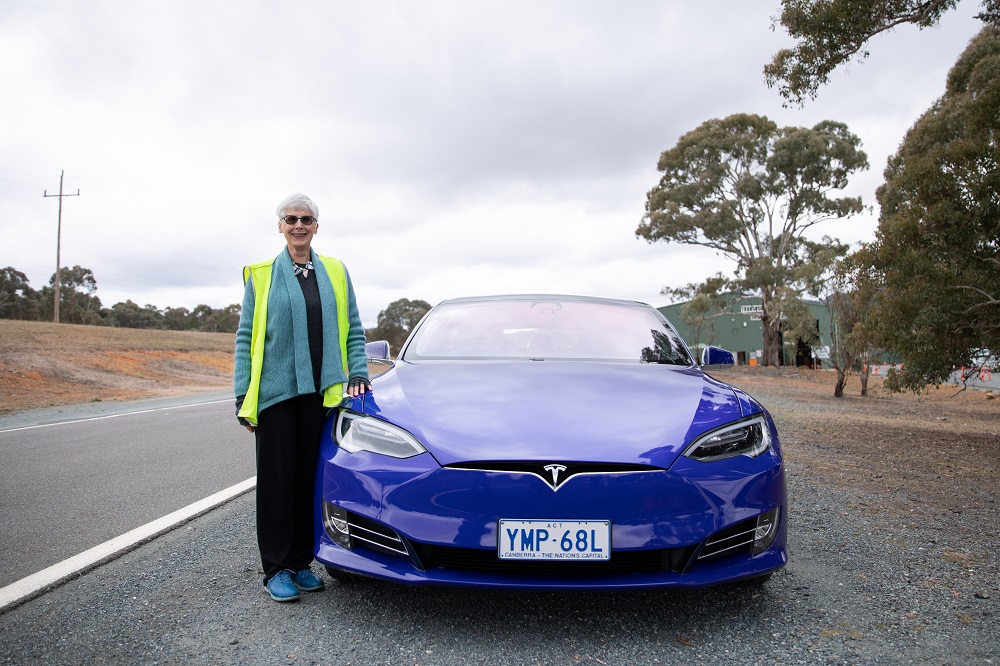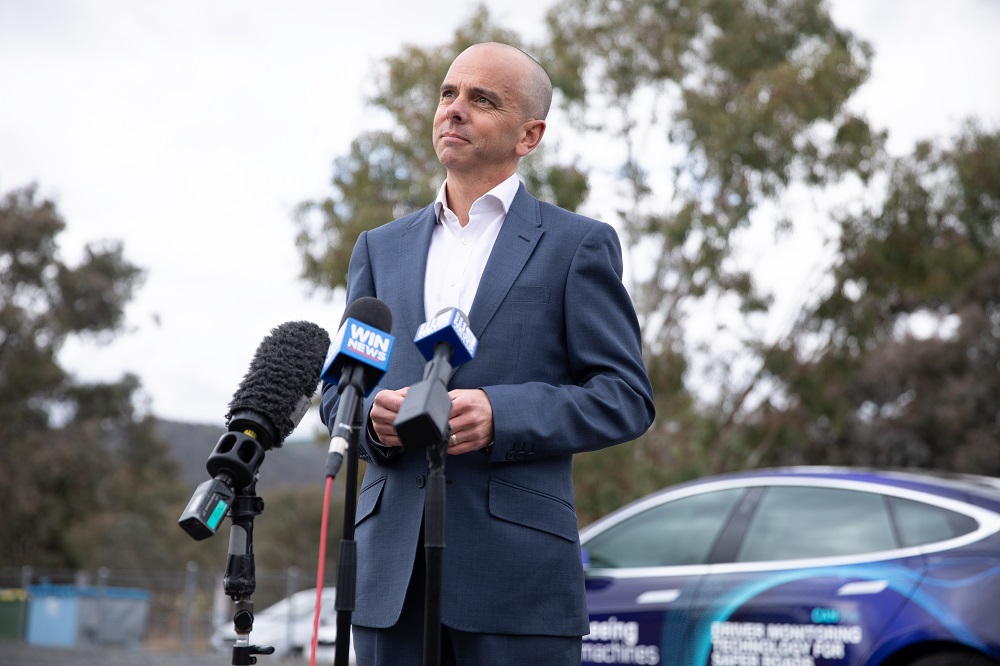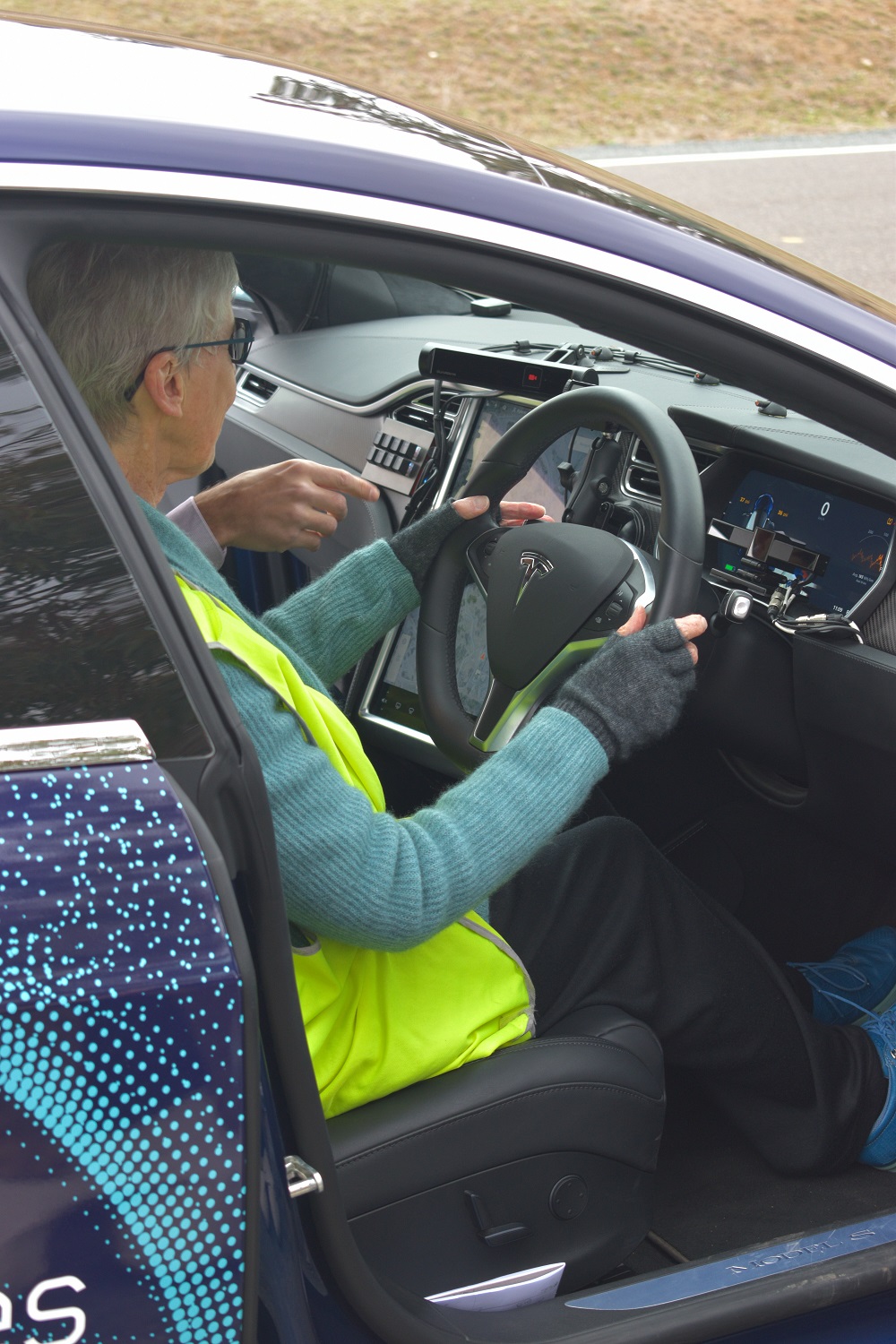Katarina Slavich
28 August 2019: The University of Canberra, ACT Government and Canberra-based company Seeing Machines have joined forces to help older Canberrans maintain their independence and health, with the help of semi-automated cars.
The collaboration builds on the success of CANdrive’s autonomous vehicle trial on driver behaviour, but specifically looks at how semi-autonomous vehicles have the potential to increase mobility for many people who could otherwise be unable to drive.
Trials with 23 volunteer drivers in their 70s and older have just been completed. The aim of the trials was to see how older drivers learn how to use the semi-autonomous vehicle and to describe their experiences when doing so.

Participant Marie Keir feels that semi-autonomous driving technology will keep her independent for longer. Photo: supplied
For the study, the participants navigated the track at the Sutton Road Driver Training Centre in a partially autonomous Tesla S. Participants were ready to take control of the car at all times but were able to activate the autopilot function, meaning the car was able to steer itself and maintain speed on some sections of the track.
The driving sessions at the centre include instruction sessions on how to use the vehicles. Participants were monitored by in-car cameras and interviewed after their driving sessions.
Distinguished Professor Diane Gibson and Associate Professor of Occupational Therapy at the University’s Faculty of Health and Dr Stephen Isbel feel that autonomous vehicles could increase mobility for older people and help keep them connected with their family and community.
“When older people stop driving, they might not be able to connect socially as they did before, which could lead to a host of health problems,” said Dr Isbel.
“They might not be able to go to the shops or to church which can be important to them and a semi-autonomous car is a tool to keep them in touch with their community.”

Associate Professor Dr Stephen Isbel is conducting a study into how semi-autonomous driving technology can improve health and social connections for older people. Photo: supplied
Participants have welcomed the study with open arms, and nearly all have said they would like to try out the technology on the open road.
“Almost all of them have said the automatic functions are pretty easy to use. It can be a bit unnatural for the car to be driving itself, but they were ready to take control of the car at all time,” said Dr Isbel.
ACT Minister for Advanced Technology and Space Industries Mick Gentleman MLA, said that as technology continues to advance, the ACT Government wants to better understand what driverless cars will mean for Canberra.
The ACT Government has provided a $75,000 grant for the trial, which will help determine the effectiveness of these semi-automated cars.
“New technology will be fantastic for people getting a little bit older, if we’re looking at the ability for them to be able to keep in touch with their family and friends, then automated vehicles can be a real opportunity for them in the future,” said Mr Gentleman.

Ms Keir was comfortable with the semi-autonomous driving technology. Photo: Madeleine Wood
Marie Keir is one of the study participants, who got to make her way around the driving track, and had no problem getting behind the wheel of the automated vehicle.
Ms Keir has been driving for 52 years and said that the automated cars would keep her independent, and in touch with her social connections.
“These cars would be good as people’s reaction times slow fractionally with age. Even a fraction of a second can be very important with the road conditions these days,” said Ms Keir.
“I think with the help of a semi-automated car, I could extend my driving life.”
Dr Mike Lenné, Senior Vice President at Seeing Machines said the trial would help them determine a range of factors that affect road safety.
“Further to supporting mobility for older drivers, it is very important for us to capture the attentional strategies of drivers of all age to inform our technology solutions,” said Dr Lenné.
Results of the research study will be published in November.


